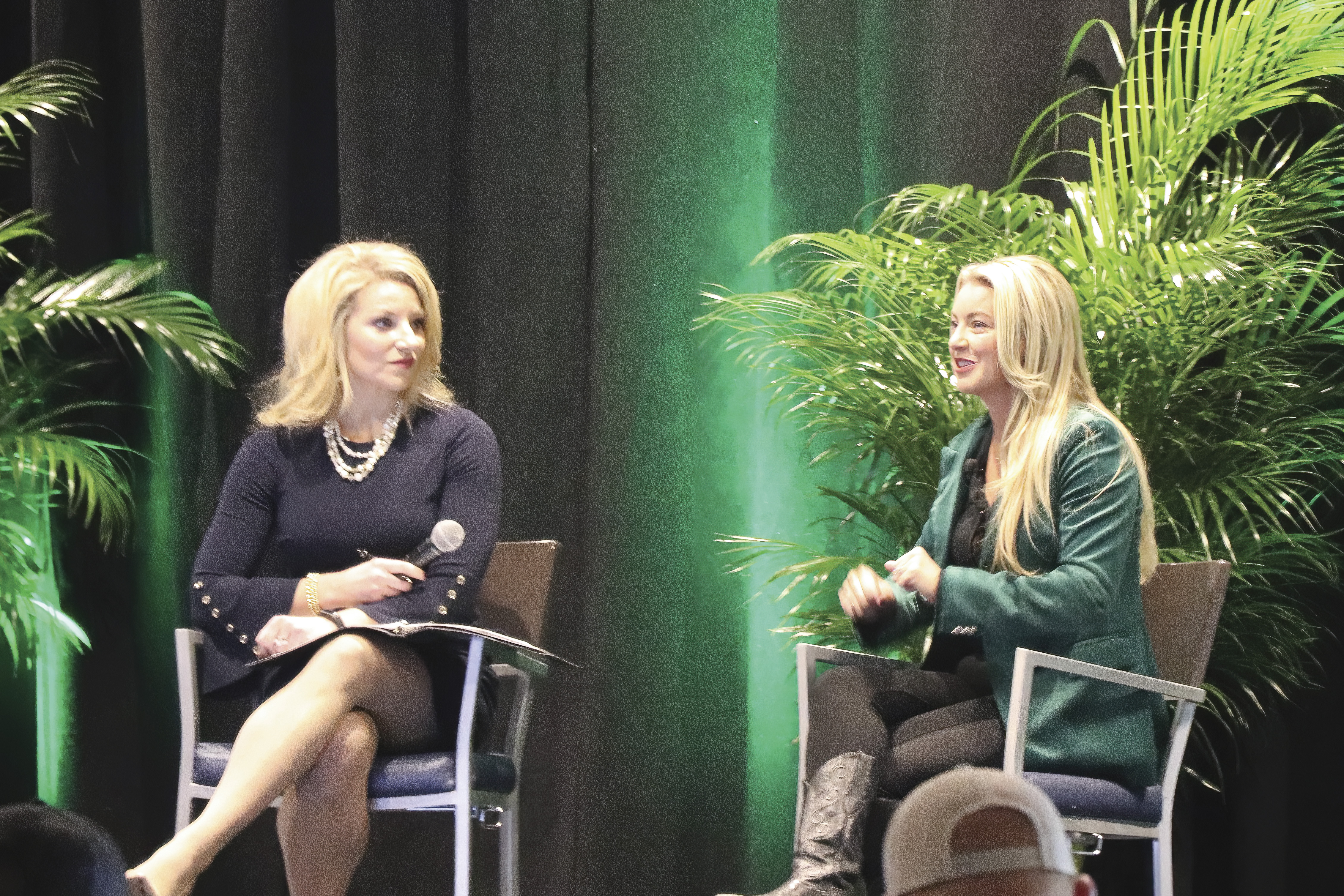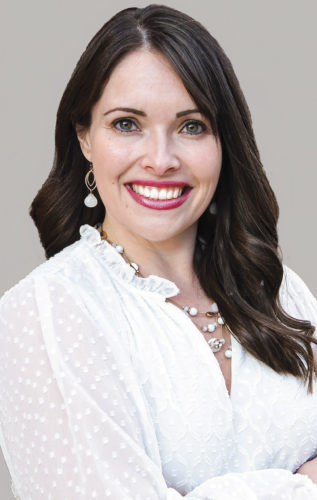“Feeding and supporting a growing population” was the theme of the 2022 Global Dairy Experience (GDX), which focused on large herds and was held Dec. 6-8 in Las Vegas. Speakers discussed a variety of topics including sustainability, technology and caring for our communities both on and off the farm.
The event kicked off with an evening welcome reception on Dec. 6, followed by two days of speakers, panel discussions and additional networking opportunities. Golf enthusiasts also had many opportunities to practice their swing during networking breaks at the virtual golf competition. GDX was held at the same time as the National Finals Rodeo (NFR), and some attendees spent their free evenings enjoying the NFR events or exploring Las Vegas.
Keynote speaker Tara Vander Dussen, who is an environmental consultant and dairy farmer from New Mexico who has built a large online following, discussed dairy’s role in sustainable food supply systems and how we can collectively speak with one voice to share our message and convey what it is we do as a dairy community.
“I think dairy is leading the way in sustainable agriculture,” she said. “I go to a lot of conferences and talk to a lot of farmers across [agricultural sectors], and one thing I always hear is how dairy is so progressive in the [sustainability] space and how we continue to lead the way for others. So that’s something to be super proud of.”
When it comes to connecting with consumers, she says we need to be careful about trying to “educate” them.
“When I first started sharing [my story online] seven years ago, I wanted to educate people. I was going to go out and teach people and tell them what they needed to know about dairy. I learned really quickly that people don’t want to be preached to; they don’t want to be educated [about how their food is produced]. Our modern consumers are actually very educated and very tech savvy. They know what they are doing. They just don’t know anything, or very little, about [modern] agriculture,” Vander Dussen said.
She compared the average consumer’s understanding of food production and farming to something else that we all use – banking.
“We probably all use a bank just like we all eat food, and if I’m being honest, I don’t really know a lot about my bank,” she added. “I know I can make a mobile deposit on my cell phone and somehow money ends up in my account, and I pay my bills online. I don’t understand the inner workings of a bank at all, but if a banker came up to me and told me I didn’t know about my money and I didn’t know where it was, I would get defensive, and I might come off really angry. I don’t want to be told that I don’t know about my money, and it’s the same with food. People feel very connected to the food they eat or something they serve in their home. What is more personal than that? So, when we come at them trying to educate them and trying to preach at them, they come off negative too.”
Vander Dussen encouraged the audience to think about the other products their farms produce.
“Milk is not the only product that leaves our dairy,” she said. “What if cow manure is just as valuable as the milk leaving our farm? I know that may seem like it’s on the horizon and coming, but I truly believe we are at a place where we are going to be turning this risk into a reward, and there is a ton of opportunity there, including untapped markets and new places we’re going.”
 Keynote speaker Tara Vander Dussen sits down with emcee Peggy Coffeen after her presentation to answer questions from the audience. Photo by Kimmi Devaney.
Keynote speaker Tara Vander Dussen sits down with emcee Peggy Coffeen after her presentation to answer questions from the audience. Photo by Kimmi Devaney.
In addition to manure and nutrient management, water is another topic on many dairy producers’ minds when it comes to sustainability.
“It was when we put in our first drip irrigation system that I had a bit of an ‘aha’ moment as I realized that I now have the level of control that I had in my greenhouse on a larger scale,” said Kurt Grimm with Netafim. “As we start to think about introducing manure and nutrient management into cropping productions, how do we think about that? Water is usually the most limiting factor, and so we have to address that first.”
Viewing manure, wastewater and other things commonly thought of as liabilities as assets instead and adopting a sustainability mindset can be beneficial, he said.
“I think a lot of times we look at the flush water, the runoff water from the buildings, the leachate off the silage piles, the irrigation water and then the manure as a liability,” Grimm said. “We look at leachate water and we say ‘well, this doesn’t do anything for me and it’s a liability on my farm.’ And if we are going to think about dairy in a sustainable light, we need to change that conversation and look at some of those things as assets. How do we look at manure as a true asset on the farm? How do we look at leachate water or runoff water that’s coming off those facilities and recycle that and use it again and again and again? I think if we can do that, we can also win over a lot of consumers and markets that will be available to us in the future.”
Richie Mayo, chief financial officer of DeJager Farms Inc., described the changing landscape of California’s dairy industry and how they approach sustainability.
“Regulations have single-handedly changed the face of dairy farming in California, and many of those regulations pertain to water and air quality and other sustainability [measures],” Mayo said. “Efficiency is the driving factor for how we plan to address sustainability going forward on our dairies.”
During another panel, Fabian Bernal, global head of sustainability for DeLaval, added that one of the threats facing animal agriculture is policymaking.
“Policymaking, especially policies made by lawmakers without proper knowledge [of animal agriculture] and the proper language and terminology, can have a tremendous impact on what we can and cannot do [on the farm],” Bernal said.
Don Schindler from Dairy Management Inc. (DMI) agreed.
“Policy is where a lot of [anti-animal agriculture] activists are right now, and they are picking on states that can be a little bit more friendly toward what they want to get across, and I believe that’s where they are hitting harder now,” Schindler said.



